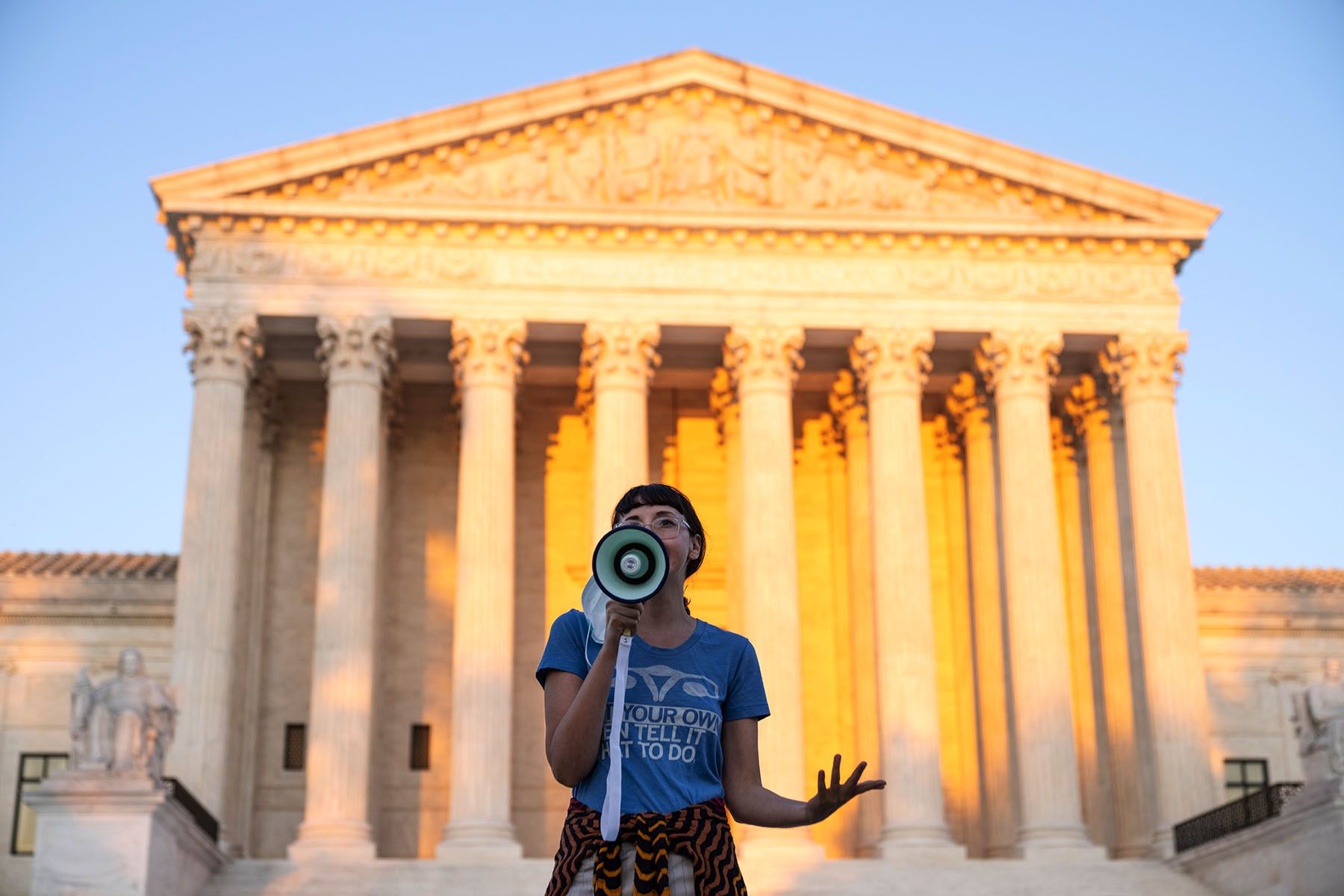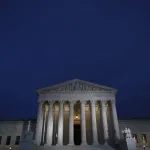The Supreme Court will hear multiple challenges to Texas’ six-week abortion ban Monday, just weeks after it initially refused block the law from going into effect.
The court will hear two challenges to the Texas law, one from some of the state’s abortion providers and another from the federal Department of Justice. In both cases, the plaintiffs have argued that the Texas law violates the protections established by Roe v. Wade, the 1973 case that guaranteed the right to an abortion up until a fetus can independently live outside the womb, which typically happens around 24 weeks of pregnancy. The Texas law appears to violate those protections.
But the unusual structure of Senate Bill 8 means that Monday’s arguments will not actually address the Roe v. Wade standard or the constitutional right to an abortion. Instead of criminalizing abortion after six weeks, the Texas law empowers private citizens to sue anyone who has provided “aid or abetment” in procuring such an abortion. A successful litigant would receive at least $10,000, and would have legal fees reimbursed. Since the law took effect, lawmakers from several other states have moved to introduce similar legislation.
Monday’s arguments will focus on this novel punishment structure.
In the case brought by the state’s abortion providers, the justices will weigh whether a scheme like Texas’ — which uses private enforcement to “insulate from federal-court review a law that prohibits the exercise of a constitutional right” — is in fact legal. And in the case brought by the federal government, the justices will address whether the Department of Justice actually has experienced harm as a result of the law, and whether it has the right to sue both to protect its own interests and to protect the broader rights of the American public.
Texas is arguing that neither the federal government nor the abortion clinics in Texas have demonstrated they suffer harm as a result of the law. It is also arguing that the clinics, who are suing state officials tasked with carrying out lawsuits, are addressing the wrong defendants.
“This is a kind of flashback to cases of the civil rights movement when Black people demanded that the federal government intervene to protect their interests when states were refusing to abide by either federal legislation or Supreme Court jurisprudence,” said Michele Goodwin, a chancellor’s professor of law at the University of California, Irvine.
Because access to abortion is currently an established constitutional right, the federal government argues it has the authority to ensure that Texas does not evade that constitutional obligation by preventing SB 8’s enforcement from being challenged in federal courts.
In the past two months, the threat of costly lawsuits has limited abortion access in Texas, caused some clinics to stop providing abortions altogether, and drastically reduced people’s ability to successfully end a pregnancy without leaving the state. In September, only about 2,000 people in Texas were able to access an abortion — less than half the number of abortions done the previous month. Policy researchers expect the number to decline further if the law stays in effect.
Already, the law’s private enforcement mechanism has helped the abortion ban evade legal scrutiny, including from the Supreme Court.
In a September decision, the court declined an emergency petition to block the law from taking effect, suggesting that Texas’ abortion providershad identified the wrong defendants and that the the threat of harm was mainly theoeritcal, and that Texas’ abortion providers therefore did not have the legal right to challenge the ban. The decision had a 5-4 split, with Chief Justice John Roberts siding with the court’s three liberal justices.
Justice Sonia Sotomayor, one of the court’s leading liberals, blasted the decision.
“Presented with an application to enjoin a flagrantly unconstitutional law engineered to prohibit women from exercising their constitutional rights and evade judicial scrutiny, a majority of Justices have opted to bury their heads in the sand,” Sotomayor wrote in a dissent joined by the court’s two other liberal justices, Stephen Breyer and Elena Kagan.
Monday’s arguments may not directly address abortion rights. But its decision could still have dramatic implications for the future of access to the procedure.
If, for instance, the court — which has six conservative justices, and previously declined to block the law— agrees with the state of Texas, that could still send a signal to other conservative states that the private enforcement mechanism offers a viable workaround to Roe v. Wade, Goodwin said.
Already, lawmakers in several states, including Florida, Arkansas and Mississippi, have indicated that they intend to introduce copycat abortion legislation based on the Texas ban.
Private enforcement as a legal loophole could also extend to other types of legislation. Two laws signed this year use a similar method of citizen enforcement to target the rights of transgender people: One law in Tennessee allows a student, parent or employee to sue for monetary damages if school officials permit a transgender person to use the bathroom or locker room when others are inside. Another in Florida allows students to sue if a school allows a transgender girl or woman to play on a team with cisgender peers.
A decision on the Texas law could come within days, suggested attorneys at the Center for Reproductive Rights and the American Civil Liberties Union. But the Texas law is not the last time this term the court will address abortion rights. Another case is scheduled to be heard on December 1, examining the constitutionality of a 15-week ban on abortion, which was passed in Mississippi but has not taken effect. That case is widely seen as another chance for the court’s conservative wing to either weaken or eliminate abortion rights.
Jennifer Gerson contributed reporting.





